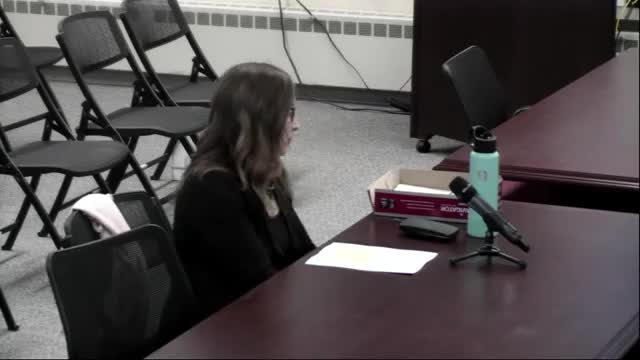Cheshire board presses delegation on falling state education aid, special-education reimbursement
Get AI-powered insights, summaries, and transcripts
Subscribe
Summary
At a Jan. 9 legislative meeting, Cheshire education leaders told Representative Linehan the district’s share of state funding has fallen and that special-education excess-cost reimbursement has declined, increasing local budget pressure and prompting calls for incentives to expand in-district programs.
Cheshire education leaders told the town’s legislative delegation on Jan. 9 that long-term state aid has declined as a share of the school budget and that the state’s special-education excess-cost grant now reimburses a smaller share of eligible costs, putting pressure on local finances.
The board presented historical context, saying the district has received about $10,000,000 in state funding since 1989–90 and that what once represented roughly a third of the local budget is now closer to 10 percent. The discussion then turned to the state-administered special-education excess-cost pool. “A lot of people think that all of the money is paid out — it is not,” a board speaker said, noting Cheshire’s reimbursement had fallen from about 72 percent to roughly 62 percent of eligible costs.
Why this matters: the reduction means Cheshire pays a larger share of very high special-education costs, especially for private placements and transportation, at the same time the absolute costs for those services have risen. Board members urged the delegation to pursue changes that reduce the district’s net expense.
Board members and Representative Linehan identified one potential state-level response: incentivize in-district or regional special-education programs. Cheshire leaders pointed to local programs at Highland, Doolittle and Norton schools as examples that retain students in-district and can be more cost-effective than private placements. The board asked the delegation to consider bills or budget incentives to reward districts that build these programs, saying current reimbursement rules do not sufficiently reward in-house services.
Board staff noted the district is working to project Individualized Education Program (IEP) counts and to plan services, but the mismatch between rising costs and lower reimbursement creates recurring budget pressure.
Representative Linehan said she supports the idea of incentives and asked board representatives to meet soon so she could file legislation during the current session.
Ending: Board members asked for help from the Cheshire delegation, offered to supply more data to legislators, and requested that any proposed legislation consider both reimbursement rates and incentives for developing in-district programming.
